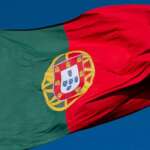A Closer Look at Portugal
Portugal Flag

Portugal Formation Date
Portugal's formation date is 1 July, 1143.
Portugal Capital Name
The capital of Portugal is Lisbon.
Portugal Neighbours
Exploring Portugal
Discover the Enchanting Charm of Portugal: A Cultural Commentary and Travel Guide
Portugal, a country located on the western coast of the Iberian Peninsula, is often overshadowed by its more popular European neighbors. However, this small nation has a rich history, vibrant culture, and stunning landscapes that make it a hidden gem waiting to be explored. As a cultural commentator and travel writer, I invite you to join me on a journey through Portugal's past, present, and future.Key Takeaways:
- Portugal is located on the western coast of the Iberian Peninsula.
- The country has a rich history and vibrant culture.
- Portugal is known for its stunning landscapes and hidden gems.
Geography:
Portugal's physical features are diverse and captivating. The country is bordered by Spain to the north and east, while the Atlantic Ocean stretches along its west and south coasts. The country's terrain is characterized by rolling hills, lush valleys, and rugged mountains. The Douro River, which flows through the country's northern region, is famous for its picturesque vineyards and is a UNESCO World Heritage Site. In addition to its natural beauty, Portugal is also rich in natural resources. The country has significant deposits of minerals such as copper, tin, and iron ore. It is also one of the world's largest producers of cork, which is used in wine bottle stoppers and other products. The climate in Portugal varies depending on the region. The northern part of the country experiences cooler temperatures and higher rainfall, while the southern regions have a Mediterranean climate with hot summers and mild winters. The Azores and Madeira islands have a subtropical climate with mild temperatures year-round.Origin and History:
Portugal's history dates back to prehistoric times, with evidence of human presence dating back to the Paleolithic era. The country has been inhabited by various civilizations, including the Celts, Romans, and Moors. In the 15th and 16th centuries, Portugal was a major global power, with its explorers discovering new lands and establishing trade routes. In modern history, Portugal was under a dictatorship for almost five decades until a peaceful revolution in 1974 brought about a democratic government. Today, Portugal is a member of the European Union and has a strong economy driven by tourism, agriculture, and industry.Government and Politics:
Portugal is a democratic republic with a semi-presidential system of government. The country is divided into 18 districts and two autonomous regions - the Azores and Madeira islands. The President is the head of state, while the Prime Minister is the head of government. Portugal has strong diplomatic relationships with its neighboring countries and is also a member of international organizations such as NATO and the United Nations. The country's borders are well-defined, with Spain to the north and east and the Atlantic Ocean to the west and south.Commerce and Economy:
Portugal's economy is diverse, with its main sectors being services, industry, and agriculture. The country is known for its production of wine, olive oil, and cork products. Tourism also plays a significant role in Portugal's economy, with millions of visitors flocking to its cities and beaches each year. Portugal has strong trade relations with other European countries, as well as with former colonies such as Brazil and Angola. The official currency is the Euro, which replaced the Portuguese Escudo in 2002.Demographics:
The population of Portugal is approximately 10 million people, with a majority living in urban areas. The country's ethnic makeup is diverse, with a mix of European, African, and Asian influences. The most widely spoken language is Portuguese, but regional dialects also exist. The median age in Portugal is 43 years, with a slightly higher percentage of females than males. The country has a high literacy rate of over 95%, and education is highly valued in Portuguese society.Culture:
Portugal's culture is a fusion of different influences, including Celtic, Roman, and Moorish. The country is known for its vibrant art scene, with famous artists such as Joana Vasconcelos and Paula Rego hailing from Portugal. Music is also an essential part of the culture, with traditional fado music being a popular genre. Portugal has many festivals and traditions that celebrate its history and culture. The Feast of St. Anthony in Lisbon and the Carnival in Madeira are just a few examples of the lively celebrations that take place throughout the year.Languages and Religion:
The official language of Portugal is Portuguese, which is spoken by over 99% of the population. However, there are also regional dialects such as Mirandese, spoken in the northeastern region of Miranda do Douro. Roman Catholicism is the dominant religion in Portugal, with over 80% of the population identifying as Catholic. However, there is also a significant Muslim and Jewish population in the country.Education and Healthcare Systems:
Portugal has a well-developed education system, with compulsory schooling for children between the ages of 6 and 18. The country has several universities and other higher education institutions that offer a wide range of academic programs. The healthcare system in Portugal is also highly regarded, with universal coverage for all citizens. The country has made significant strides in improving public health initiatives, resulting in a high life expectancy rate.Sports and Recreation:
Football (soccer) is the most popular sport in Portugal, with the national team achieving success in international competitions. Other popular sports include futsal, handball, and roller hockey. The country also has a strong tradition of water sports, such as surfing and sailing. Portugal's stunning landscapes and mild climate make it an ideal destination for outdoor activities. From hiking in the mountains to lounging on the beaches, there is something for everyone to enjoy.Tourism:
Portugal's tourism industry has been growing steadily in recent years, with over 12 million visitors in 2019. The country offers a diverse range of attractions, from historic cities like Lisbon and Porto to beautiful beaches in the Algarve region. Some must-see places in Portugal include the Belem Tower in Lisbon, the Douro Valley wine region, and the medieval town of Obidos. The country also has a well-developed transportation system, making it easy for tourists to explore different regions.Travel Information for Foreign Visitors:
Visitors from most countries do not require a visa to enter Portugal for short stays. However, it is always best to check with your local embassy or consulate before traveling. The currency used in Portugal is the Euro, and credit cards are widely accepted. Portugal is generally a safe country, but it is always advisable to take precautions against pickpocketing and other petty crimes. The local customs and etiquette are similar to other European countries, with greetings being a simple handshake or kiss on the cheek.Quotes:
- "I have seen great beauty of spirit in some who were great sufferers." - St. Teresa of Avila
- "Portugal has an enormous potential for tourism." - Jose Socrates
- "This is the oldest European city I've ever been to. Rome, London, Lisbon, Madrid - they're all babies compared to Plovdiv." - Anthony Bourdain
Conclusion:
In conclusion, Portugal is a country with a rich history, diverse culture, and stunning landscapes. From its ancient civilizations to its modern developments, Portugal has something for everyone. With its warm and welcoming people, delicious food, and enchanting charm, it is no wonder that this hidden gem is becoming a popular destination for travelers. As the country continues to grow and evolve, one thing is for sure - Portugal's future is bright. So pack your bags and come discover the magic of Portugal for yourself.Portugal Highest Point Name
The highest point in Portugal is the summit of Mount Pico, which stands 2,351 meters (7,713 feet) above sea level. It is located in the Azores archipelago and is the highest mountain in the country.
Portugal Capital Longitude
Lisbon, Portugal is the country's capital and it has a longitude of 9.1319 degrees East.
Portugal Capital Latitude
Lisbon, Portugal is the capital of Portugal and its latitude is 38.7223° N.
Portugal Official Languages
The official language of Portugal is Portuguese. English and French are also widely spoken.
Portugal Ethnic Groups
Portugal has a diverse ethnic population, with many groups contributing to the country's history and culture. The largest ethnic group is Portuguese, making up over 91.2% of the country's population. The second largest ethnic group is Brazilian (2.2%), followed by African (1.5%), Asian (1.4%), and other (3.7%). There are also communities of North Indians (1%), as well as smaller numbers of Spanish, French, German, Dutch, English, Flemish, and North African immigrants. The Portuguese African diaspora includes people from Cabo Verde, Angola, Guinea-Bissau, and Mozambique. Portugal is a multilingual, multiethnic society that has been shaped by centuries of immigration. As a result, it is richly diverse and boasts a multicultural population that is well-integrated throughout the nation.
Portugal Religions
The largest religious groups in Portugal are Roman Catholic (approx. 81%), Protestant (6%), non-believers (7.9%), and other religious affiliation (5.1%). Portugal is a predominantly Catholic country with around 4600 Catholic parishes and over 1150 churches. Preaching and evangelization are generally welcomed in Portugal, although more traditional services remain the norm in rural areas. There is also a small Jewish population, numbering about 2500 people. Other groups, such as the Church of Jesus Christ of Latter-day Saints, Buddhists, and the American Church of Lisbon, have gained growing acceptance in recent years. Additionally, while religious instruction continues to be offered in Portuguese primary and secondary schools, there has been increased demand for secular and non-denominational curricula in recent years.
Portugal Total Area
92,090 km²
Portugal Land Area
Portugal has a total land area of 91,470 square kilometers (35,414 square miles).
Portugal Water Area
According to the World Bank, Portugal has 206,545 square kilometers (79,673 square miles) of water area, including lakes, reservoirs, and rivers.
Portugal Total Population
As of 2020, Portugal's total population is estimated to be approximately 10,289,959.
Portugal Currency Name
The currency of Portugal is the Euro (EUR).
Portugal Currency Code
The currency code for Portugal is EUR.
Portugal Currency Symbol
€
Portugal Time Zones
- Standard Time: UTC+01:00
- Daylight Saving Time: UTC+02:00
Used in Portugal, Western European Time (WET) is 1 hour ahead of Coordinated Universal Time (UTC+1). Daylight Saving Time (DST)–also known as Summer Time–is usually observed in Portugal between the last Sunday in March and last Sunday in October, during which the clocks are advanced one hour ahead of WET (UTC+2). At 1:00am local time on the last Sunday in March, the time is shifted forward one hour to 2:00am WET. At 2:00am UTC+2 on the last Sunday in October, the time is shifted back again by one hour to 1:00am WET.
Portugal Calling Code
The Portugal country calling code is +351
Portugal Internet TLD
www.aveholidays.pt
How to Say "Portugal" In Different Languages?
- Belarusian
- Партугалія (be-BY)
- Bulgarian
- Португалия (bg-BG)
- Czech
- Portugalsko (cs-CZ)
- Finnish
- Portugali (fi-FI)
- French
- Portugal (fr-FR)
- German
- Portugal (de-DE)
- Greek
- Πορτογαλία (el-GR)
- Hungarian
- Portugália (hu-HU)
- Hebrew
- פורטוגל (he-IL)
- Italian
- Portogallo (it-IT)
- Japanese
- ポルトガル (ja-JP)
- Dutch
- Portugal (nl-NL)
- Polish
- Portugalia (pl-PL)
- Romanian
- Portugalia (ro-RO)
- Russian
- Португалия (ru-RU)
- Spanish
- Portugal (es-ES)
- Turkish
- Portekiz (tr-TR)
- English
- Portugal (en-US)
- Ukrainian
- Португалія (uk-UA)
Portugal Popular Holidays
- Carnival
- 23 to 25 February
- New Year's Day
- 1 January
- Good Friday
- 10 April
- Labour Day
- 1 May
- Portugal Day
- 10 June
- Assumption Day
- 15 August
- Republic Day
- 5 October
- All Saints' Day
- 1 November
- Restoration of Portuguese Independence
- 1 December
- Immaculate Conception Day
- 8 December
- Christmas Eve
- 24 December
- Christmas Day
- 25 December
- St. Stephen's Day
- 26 December





